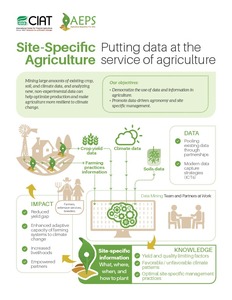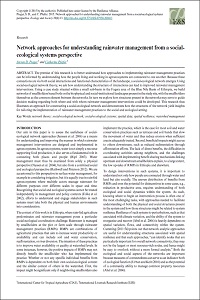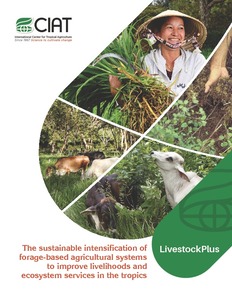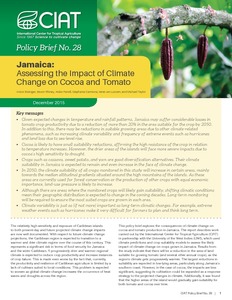Mission
To reduce hunger and poverty, and improve human nutrition in the tropics through research aimed at increasing the eco-efficiency of agriculture.
People
CIAT’s staff includes about 200 scientists. Supported by a wide array of donors, the Center collaborates with hundreds of partners to conduct high-quality research and translate the results into development impact. A Board of Trustees provides oversight of CIAT’s research and financial management.
Values
- Shared organizational ethic
- We respect each other, our partners, and the people who benefit from our work. We act with honesty, integrity, transparency, and environmental responsibility in all of our joint endeavors.
- Learning through partnerships
- We work efficiently and pragmatically together and with partners. Considering our diversity to be a key asset, we adapt readily to change and strive to improve our performance through continuous learning.
- Innovation for impact
- We develop innovative solutions to important challenges in tropical agriculture, resulting in major benefits for the people who support, participate in, and profit from our work.
Members:
Resources
Displaying 236 - 240 of 958Soil Fertility in relation to Landscape Position and Land Use/Cover Types: A Case Study of the Lake Kivu Pilot Learning Site
Site-Specific agriculture: putting data at the service of agriculture
Network approaches for understanding rainwater management from a socialecological systems perspective
The premise of this research is to better understand how approaches to implementing rainwater management practices can be informed by understanding how the people living and working in agroecosystems are connected to one another. Because these connections are via both social interactions and functional characteristics of the landscape, a social-ecological network emerges. Using social-ecological network theory, we ask how understanding the structure of interactions can lead to improved rainwater management interventions.
LivestockPlus: The sustainable intensification of forage-based agricultural systems to improve livelihoods and ecosystem services in the tropics
As global demand for livestock products (such as meat, milk, and eggs) is expected to double by 2050, necessary
increases to future production must be reconciled with negative environmental impacts that livestock cause. This
paper describes the LivestockPlus concept and demonstrates how the sowing of improved forages can lead to the
sustainable intensification of mixed crop–forage–livestock–tree systems in the tropics by producing multiple social,
economic, and environmental benefits. Sustainable intensification not only improves the productivity of tropical
Jamaica: assessing the impact of climate change on cocoa and tomato
This policy brief explores the consequences of climate change on cocoa and tomato production in Jamaica. The report describes work carried out by CIAT in partnership with the University of the West Indies (UWI), which used






